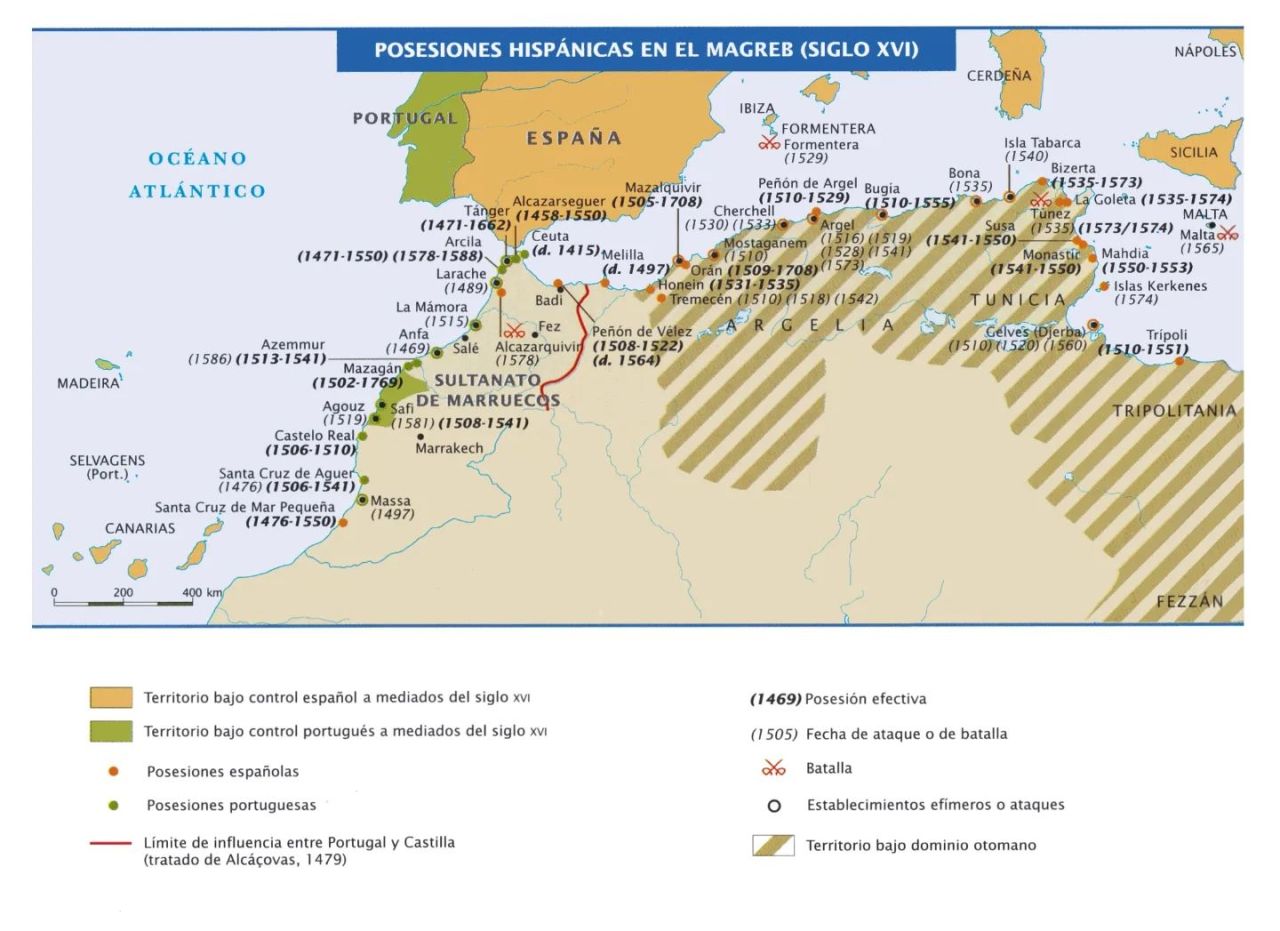
Spanish presidios in northern Africa, 15th-18th century.
“Atlas de Historia de España”, Planeta, 2005
The presidios were fortresses located along the Mediterranean coast that housed a military garrison. In some cases, Spain entrusted them to vassals, such as Tripoli with the Order of Malta. They were to serve as a base for future Christian expansion into enemy Muslim territory up to the Holy Land. But the presidios soon turned out to be only a strategic issue in the defense of Spanish or Italian coasts, threatened by the Barbary Corsican and Turkish power (also directly attacked as in the campaigns of Kefalonia in 1500, Korón in 1532 or Lepanto in 1571).
According to historian Fernand Braudel, each monarch had a different response. The first was the Fernandina (1492-1516) which was the continuation of the Reconquista: military campaigns in which Pedro Navarro stood out, embodied in the capture of strategic points on the coast from which the nearby towns were controlled. The second was Carolina (1516-1559) which would lead to a gradual decline of the Spanish presence. The absolute ruin of African politics would come in the third stage: the Philippine one (1559-1577), with the failure of Los Gelves (1560) and the loss of Tunisia – including the sacking of the Citadel of Menorca (1558); After the annexation of Portugal in 1580, the king would focus his ambitions on the Ocean.
After the independence of Portugal in 1640, the Ceuta nobles requested to continue belonging to Spain. In 1668 a treaty recognized Spanish sovereignty over Ceuta, including the island of Perejil.
In the middle of the s. XVII, the Moroccan dynasty of the Alawites began the assault of the squares. Only Ceuta, Melilla, the Alhucemas Islands and the Peñón de Vélez remained in Spanish hands in the 19th century. XVIII. In 1774, Melilla was subjected to an unsuccessful three-month siege by Sultan Sidi Mohamed.
The Oranesado remained Spanish for almost three centuries: 1509-1708 and 1732-1791; In 1791, the Councils decided to cede Oran and Mazalquivir.
